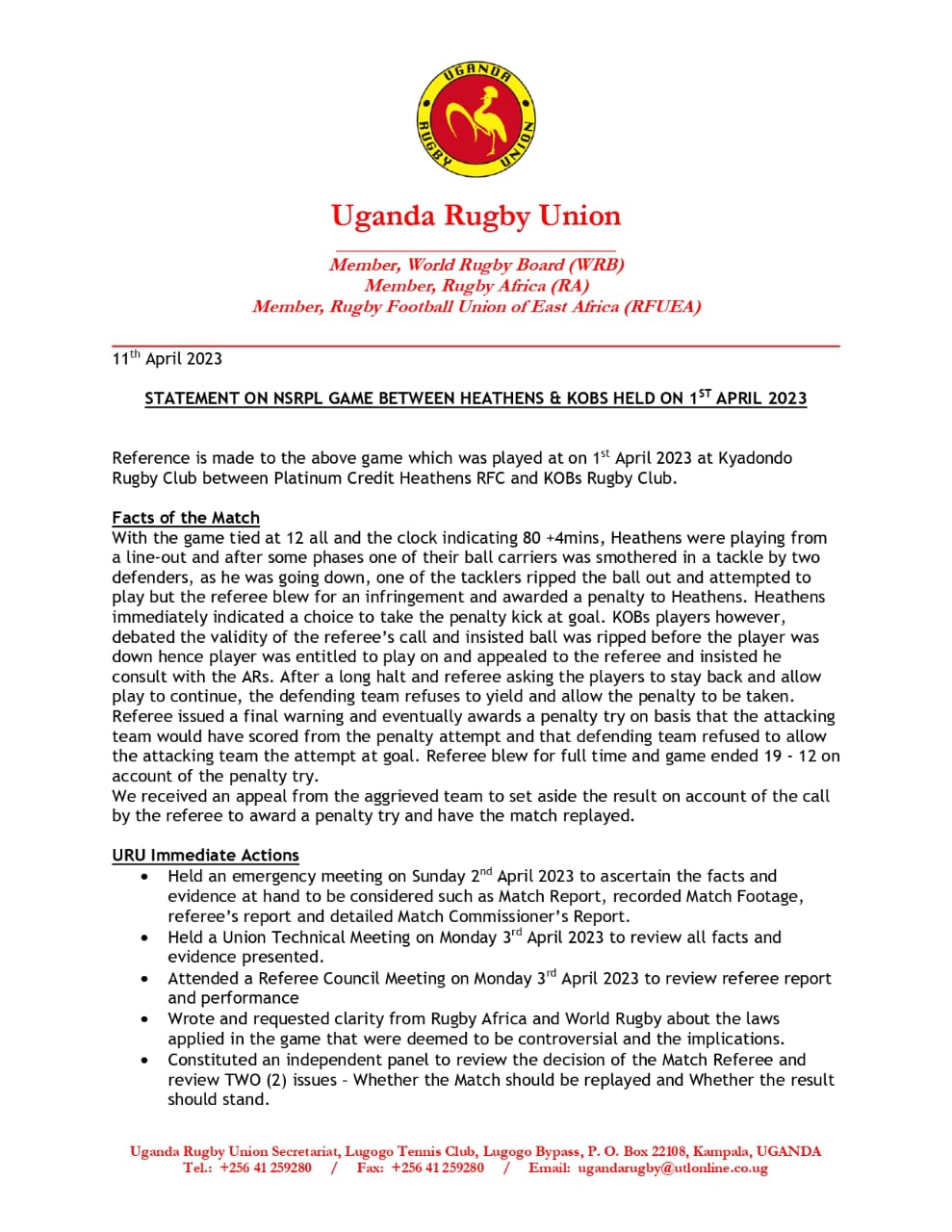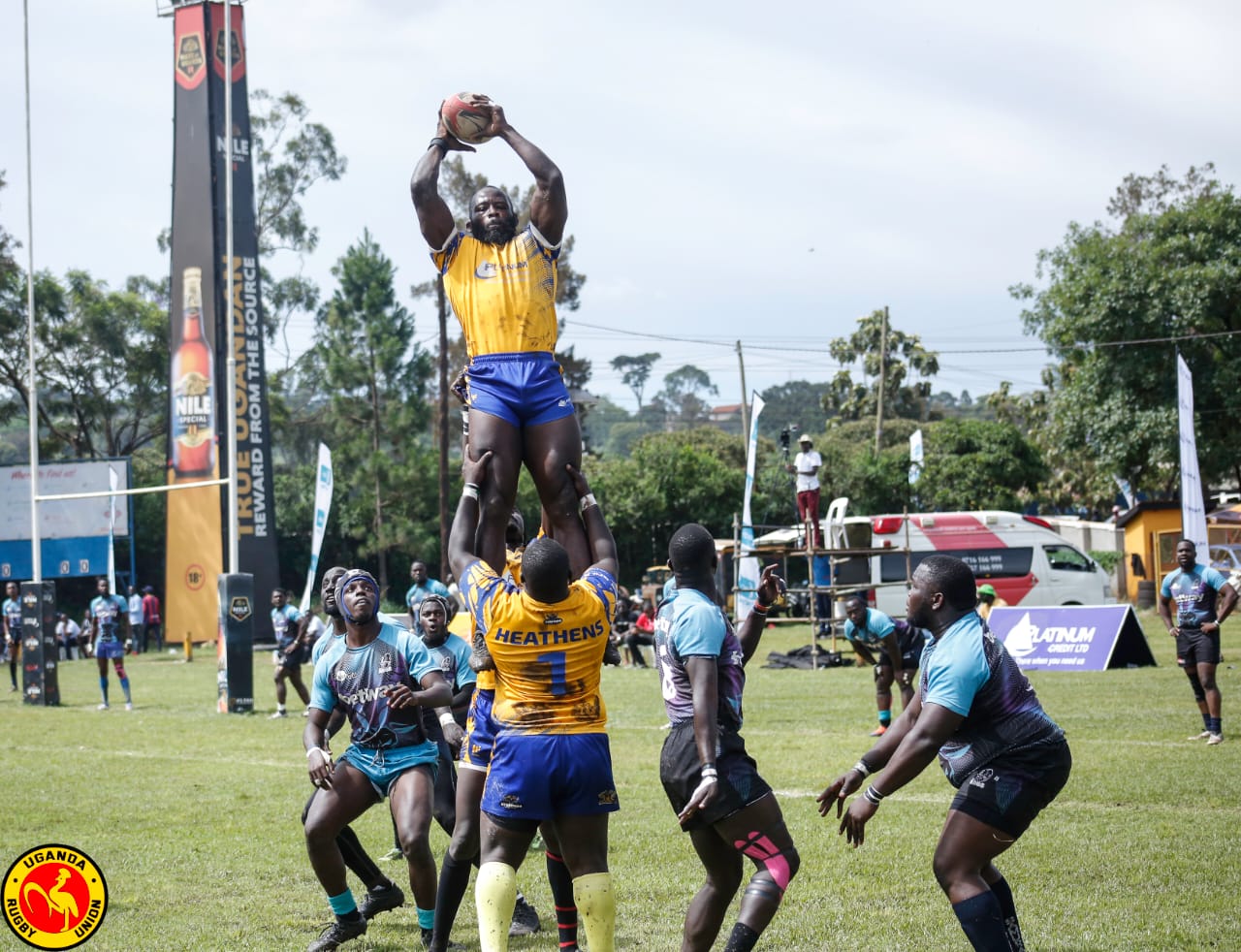At this point, we should just finish the 15s championship and look forward to what the international calendar looks like and the national 7s – or we should keep with the tag-and-touch rugby extravaganza.
The precedent has been set!
In all honesty, who has made sense of that statement about the unfortunate events in the Lions Cup’s second leg?

This has ceased to be about KOBs, Heathens or even the referee’s society. It is bigger than all of us.
There have been a plethora of dodgy calls from referees, and it needed media uproar in arguably the biggest game in the land for us to have a semblance of sanity.
The 3-page summarised, states that Heathens got the win, the penalty try was nullified, the penalty was probable, so it was awarded, and the final score remained 19-12.
All this was arrived at after consulting with the laws governing the game, stalwarts and scholars of the game.
Biased assumptions?
The premise on which the Heathens have been granted a win, as a result, is the probability that they would convert the penalty they had been awarded because it was in their 22.
If history serves us right, the last time the two teams met at Kyadondo, the Heathens fluffed three kicks in the 22. And since the URU has let us run with hypotheticals, the result could have been a miss.

I understand the Union’s obligation to protect their referees, but they are also mandated to protect the integrity of the game and hold everyone accountable for their actions.
And in trying to fix the situation, the Union shot themselves in the foot. The result stood, but they suspended the referee who recorded and awarded it. Two wrongs don’t make a right.
So what happens to the reports of inconsistency from the other games? The union have opened the pandora’s box and will now be faced with more appeals than before of clubs bemoaning referees’ actions.
In tending to the “big” clubs, the ruling body has set a precedent that unless it is happening to Heathens or KOBs, they will not give it the light of day.
The analogy of the police and a thief
A colleague has helped summarise the statement aptly. Here:
“It’s like police or court telling you, yes, all evidence says you were robbed. A thief broke into your house, and they took A, B, C, D. We have found your stolen property in the thief’s custody, but we can not give them back to you because,
1) the thief already put them in his house
2) we have to appreciate that the thief used a lot of energy and intelligence to steal from you, so giving your property back will undermine his skills and energy.”
By: James Kavuma